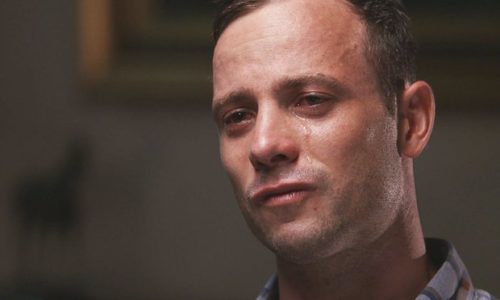
Faced with the prospect of a 15-year prison sentence for murder, few people would opt to tell their life story in a lengthy interview with an international television station.
Then again, most of us do not lead such exceptional lives. Most of us do not shoot our partners in our homes. Most of the people convicted of murder do not get a hearing on the world stage. Most of them aren’t in a position to cry about their treatment on television.
Oscar Pistorius fired four high-calibre bullets into Reeva Steenkamp and then felt sorry for himself for being burdened with the process of justice that held him accountable for killing her.
An even greater inconvenience was being sentenced again, for murder instead of the initial culpable homicide conviction, after a ridiculous one-year incarceration before he was paroled.
Judge Thokozile Masipa, responsible for handing down the first five-year jail term for culpable homicide, got a second opportunity to massage Pistorius’s privilege, deciding there were “substantial and compelling circumstances” that allowed her to deviate from the prescribed 15-year minimum sentence for murder.
Of course there were exceptional circumstances. This was an exceptional murderer and an exceptional case. His was no ordinary life. It was about society indulging and celebrating him for his speed and performance; it was about fast cars and beautiful women; it was about firing lethal weapons for the sheer thrill.
In Pistorius’s charmed life, utterly defined by exceptionalism, the justice system should have bowed to him and trundled off to hold lesser mortals accountable for their actions. Not the star athlete who overcame his disability to win gold medals for South Africa. Not the humanitarian who motivated others with disabilities to aspire to greater heights. Not the fragile victim of our crime-ridden society who became so paranoid that he was forced to shoot four bullets through a bathroom door.
No, not our Oscar. We simply cannot have him shut away when he could be helping the “less fortunate” among us. For this is what he told ITV in an in-depth interview in which he again indulged in his soppy, illogical version of what happened the night he killed Steenkamp.
It was all so obviously contrived to evoke public sympathy, as was a picture his brother Carl posted on Twitter of the convicted murderer asleep on a couch with little kids propped up against him.
Of course nobody in their right mind would volunteer to go back to prison, but in his ITV interview Pistorius made out that his reason for not wanting to return to jail was for the sake of the rest of society, not because of his obvious sense of privilege. He wants to help us, apparently, and believes that Steenkamp would not want him to serve time for robbing her of her life.
“If I was afforded the opportunity of redemption, I would like to help the less fortunate like I had in my past,” he said. “I would like to believe that if Reeva could look down upon me that she would want me to live that life.”
The “less fortunate” have no say in this and neither does Steenkamp. Her family, who suffered unimaginable trauma and grief, have also been left without justice for her murder.
Masipa’s primary concern in her sentencing judgment was the “broken man” in the dock. “The life of the accused will never be the same… He is a fallen hero who has lost his career and been ruined financially. He cannot be at peace,” she said.
Masipa said the continuing misperception that Pistorius had intentionally killed Steenkamp was something the court had a duty to correct to “prevent unjustified outrage from the public”.
Unjustified? Really? What is the appropriate response to murder, My Lady?
Yes, the prosecution could not produce evidence to prove conclusively that there had been an argument between Pistorius and Steenkamp that night, other than to bring witnesses who said they heard people fighting and Steenkamp’s “blood curling” screams. Masipa chose to disregard the testimony of the neighbours and to believe Pistorius’s version, even though she found him to be a “poor and contradictory” witness.
This was also not a case of gender violence, Masipa said. Evidence had been led in the trial showing Pistorius to be an argumentative, self-indulgent, rude, ill-tempered, jealous and spoilt man who fires guns in the air and believes women are possessions. Masipa is perhaps a truly magnanimous human being for still believing he was incapable of being abusive.
Masipa is convinced there was no argument between the couple that night – but it does not mean the rest of us will. We also did not fall for Pistorius’s whimpering as evidence of “genuine remorse”, which Masipa found to be a mitigating factor for a light sentence.
The Pistorius case was sickening from the very beginning and this sentence, if left unchallenged, sets a dangerous precedent for exceptionalism. As he starts his new jail term, we are reminded once again of how the justice system can be used as a white man’s plaything.
A version of this article first appeared on The Daily Maverick

No comments:
Post a Comment